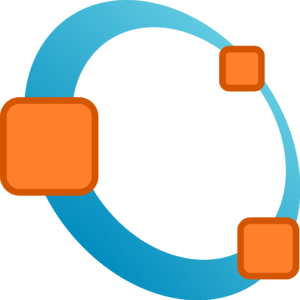GNU Octave
High-level programming language for numerical computations.
Developer
Licensing
Pricing
Supported O.S.
Detailed Description
Brief Introduction:
GNU Octave is a high-level programming language primarily designed for numerical computations. It is a free, open-source alternative to MATLAB, providing a powerful environment for solving linear and nonlinear problems, performing data analysis, and visualizing results. Octave’s syntax is largely compatible with MATLAB, making it an accessible tool for both beginners and professionals in scientific computing, engineering, data analysis, and machine learning. With its vast library of built-in functions and open-source nature, GNU Octave is widely used in academia and industry for research and development.
Key Features:
- MATLAB Compatibility
One of Octave’s biggest strengths is its compatibility with MATLAB. Users familiar with MATLAB will find Octave’s syntax almost identical, allowing for easy transition between the two. Most MATLAB code can be executed in Octave without any modification. - Comprehensive Numerical Computation Capabilities
Octave excels at handling complex numerical problems, including linear algebra, differential equations, optimization, and integration. Its wide range of mathematical functions makes it suitable for tasks such as solving matrix equations, eigenvalue problems, and more. - Data Visualization and Plotting
Octave includes built-in plotting functions that allow users to visualize data in 2D and 3D. Whether you’re plotting simple graphs or complex surfaces, Octave offers customizable visualizations that help in analyzing and interpreting data. - Scriptable Environment
GNU Octave offers an interactive command-line interface that can also be used for running scripts and automating tasks. This makes it suitable for iterative problem-solving and developing complex programs that require repetitive computations. - Extensive Function Libraries
Octave provides a vast collection of pre-written functions that cover numerous scientific and engineering applications. These functions are constantly updated and can be extended using Octave’s package management system, allowing users to install and manage additional functionality. - Integration with External Libraries
Octave can call functions written in C, C++, Fortran, or Python, allowing for integration with external libraries and tools. This flexibility enables users to extend Octave’s functionality and optimize performance for specific applications. - Open-Source and Free
As part of the GNU Project, Octave is completely free and open-source. This allows users and developers to freely use, modify, and share the software without any licensing fees or restrictions, making it an accessible tool for students, researchers, and developers worldwide. - Cross-Platform Support
Octave is available on multiple platforms, including Windows, macOS, and Linux, ensuring compatibility across a wide range of operating systems. This flexibility allows users to run Octave on various devices and environments seamlessly. - Support for Machine Learning and Data Science
Octave has growing support for machine learning applications, with libraries and tools for tasks such as regression, classification, clustering, and neural networks. This makes it increasingly useful for data scientists and machine learning engineers who want a free alternative to MATLAB. - Object-Oriented Programming Support
Octave supports object-oriented programming (OOP), making it possible to create reusable classes and methods that can be leveraged in large-scale projects. - Command Line and GUI Interfaces
Octave provides both a command-line interface for users who prefer scripting and a graphical user interface (GUI) for users who prefer working in a more visual environment. The GUI makes it easier for beginners to use Octave while offering advanced users the power of command-line flexibility.
Target Users / Customers:
- Researchers and Scientists
Octave’s robust numerical capabilities make it an ideal tool for scientists and researchers working in fields such as physics, chemistry, biology, and economics. Its ability to handle complex mathematical modeling and simulations allows for high-quality research output. - Engineers and Technologists
Engineers, especially those in fields like mechanical, electrical, and aerospace engineering, use Octave for simulations, optimization tasks, and control systems. It provides engineers with the computational power needed for designing and analyzing complex systems. - Data Scientists and Machine Learning Practitioners
With its growing support for machine learning and data science tasks, Octave is an increasingly popular tool for professionals in data analytics. Its extensive libraries and support for data visualization make it a viable option for those who need to explore, analyze, and model data. - Educators and Students
For academic institutions, Octave serves as a cost-effective alternative to MATLAB. Its free availability and MATLAB compatibility make it the perfect tool for students learning computational methods and numerical analysis without incurring expensive software costs. - Mathematicians and Statisticians
Mathematicians and statisticians can use Octave for complex mathematical operations, numerical modeling, and statistical analysis. Its powerful libraries and extensive range of functions provide the tools necessary to solve sophisticated problems.
Why Choose GNU Octave?
GNU Octave stands out for its rich feature set, powerful numerical computing capabilities, and complete MATLAB compatibility—all at zero cost. As a free, open-source solution, it is accessible to users from all backgrounds, making it an ideal tool for academic, research, and industrial applications. Whether you need to perform data analysis, visualize complex systems, or solve challenging mathematical equations, Octave delivers reliable performance. Its cross-platform support, interactive environment, and vast function libraries make it one of the most versatile tools for scientific computing.
Closing Remarks:
GNU Octave is a powerful and versatile tool for anyone involved in numerical computations, data analysis, or scientific research. Whether you’re a researcher solving complex equations, an engineer optimizing systems, or a student learning computational methods, Octave offers a robust, free, and open-source alternative to proprietary software like MATLAB. With its intuitive interface, compatibility with external libraries, and strong community support, Octave continues to be a reliable solution for professionals and learners worldwide. Dive into the world of high-level numerical computation with GNU Octave and unlock endless possibilities for your projects.

